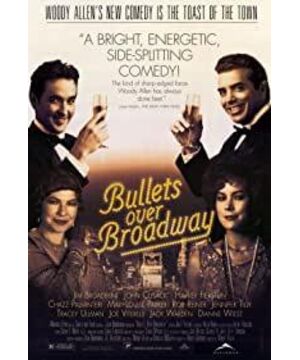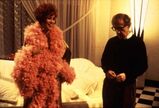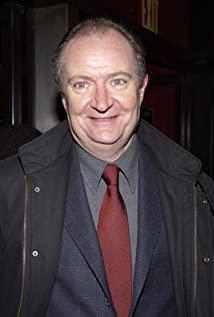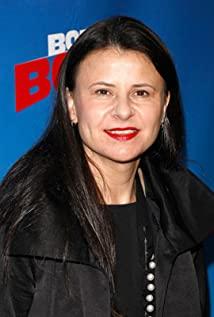1. Plot introduction:
A playwright male protagonist who is extremely artistic in the script. He wants his friends to find someone to invest in his latest drama. His friend rejected the male protagonist because the script was too real and too artistic to meet the public taste. Finally, a gangster boss offered to pay, provided that his mistress who danced in the ballroom played a role and made her famous. But the mistress knew nothing about the script and the movie. The male protagonist gathered all the actors and started the rehearsal stage. There were frequent disagreements between the actors in terms of the plot, but at this time, the mistress's bodyguard Qiqi accidentally said a solution to the plot at the rehearsal scene, and everyone agreed. At this time, the male protagonist who had a girlfriend had a relationship with one of the actors who was outdated. Since then, the male protagonist began to exchange scripts with Qiqi, and every time he changed the script, he had to show him to Qiqi. With Qiqi instructing the male protagonist to rewrite the script behind his back, he even directly directed the design of the plot direction, while the male protagonist only It's just to write out his thoughts. At this time, the relationship between the actors has become harmonious because the plot is more and more in line with them. After the first play was performed in Boston, the critics were sensational because of the perfect script, but Chichi was increasingly dissatisfied with the role played by his boss's mistress, but at this time the male protagonist objected to Chichi wanting to change his mistress. The reason is that her existence is the only reason for the successful performance of the script, and her existence only weakens the script, not spoils it. Finally, Qiqi, a bodyguard who pursues artistic perfection instead, kills his mistress on the way home one day. The male protagonist scolded Qiqi after knowing this, accusing him of lacking humanity. Then, the play was a major success in New York. When Qiqi came to congratulate the hero, he was killed by his boss's men behind the stage. At the last moment of his life, Qiqi told the hero the perfect ending of the plot. design. Witnessing all this, the male protagonist realizes that the actor he likes just likes his art, not his people. He finally realized the importance of girlfriends, and finally, he went to another artist's house to save his girlfriend, and said to her: There are two things I am sure of, the first is that I love you, and the second is that I am not an artist .
Second, the movie scene analysis:
Incentive event: The male protagonist asked his friend to invest in his script, but the friend rejected the male protagonist because of box office and art.
It’s a redemptive plot story, and it’s also a positive, ironic ending—the protagonist’s obsession with art ends up in the negative, ending with the realization that he’s not an artist.
Conflict level: There are three kinds of conflicts, personal inner conflict (the male protagonist's inner view of art), conflict between people (various derailment relationships), conflict between people and social institutions (the male protagonist and gang forces, the rejection of the drama troupe) )
The dilemma encountered by the male protagonist and the three-act distinction: [Incentive event] No investor (provided by the gangster) - Helen is proud and refuses to perform (solved with flowers) - [First act climax] I don't want to The mistress performance (the male lead compromises with art) - the bad acting of the mistress (self-solving) - the conflict between Helen and Eden (self-solving) - the line contradiction between Qiqi and the male lead about reducing the mistress (the male lead compromises) - The conflict between the male protagonist, his mistress and Qiqi about the quality of the lines (the male protagonist left the scene angrily and compromised) - [Climax of the second act] The male protagonist and Eden and his mistress once again had a conflict about the quality of the lines (Helen suggested that the male protagonist accept Qiqi's point of view, the male protagonist accepts the compromise again) - Boston's performance is successful, the male lead and Qiqi have a conflict about whether to replace the mistress (the male lead compromises again) - [The third act climax and ending] Qiqi kills the mistress (The play is performed perfectly) The end.
The main plot is in three acts: Act 1: The male protagonist solves the problem of funding and actors. Act 2: Due to the arrival of Qiqi, the male protagonist solved the problem of rehearsal. Act 3: Chichi solves the script's last hurdle—the mistress, and the script plays out perfectly.
The whole main plot, the male protagonist's quest, from the beginning of absolutism of artistic perfection, to constant compromise to art, and finally accepting imperfection. Such a process reflects the entire process of Qiqi's short-lived appearance as a "great artist".
Each subplot has its own development, crisis, climax, and ending. The relatively complete subplots include the relationship between the third male protagonist and Helen in the subplot, and the relationship between the fourth male protagonist and Qiqi in the subplot. The rest of the subplots, while simple, also have their own "beginning, development, climax and ending".
On the surface again, the main plot branches give birth to all the subplots. The protagonist lacks funds, so the gang boss in subplot 2 appears to please his mistress. In order to show the protagonist's pursuit of art from the negative side, subplot 3 is introduced, the relationship between the male protagonist and Helen. Although the male protagonist strives to pursue artistic perfection on the surface, he actually cheats on his personal feelings, which shows that the male protagonist does not like art. He looks like that. The protagonist encounters a situation that cannot be adjusted in the conflict between the script and the actors, so the fourth subplot, the relationship between the male protagonist and Qiqi, the arrival of Qiqi helps the male protagonist solve this problem. In order to show the complete hypocrisy of the protagonist towards art, subplot 5 is introduced, the relationship between Qiqi and his mistress. Qiqi kills his mistress. On the one hand, the male protagonist condemns Qiqi's morality, but on the other hand, he compromises with the imperfect art to achieve the climax of the story. In order to express the irony and the repentance of the male protagonist, the sixth subplot is introduced, the relationship between the male protagonist and his girlfriend, which shows the final consciousness of the male protagonist, and the meaning of the story has risen to a new level.
This is the supporting role of the subplot to the main plot. The main plot is like branches, and the subplots are like branches and leaves. The main plot absorbs energy and oxygen from the outside world, supporting and promoting the development of the main plot.
The main plot is the whole process from the preparation of the play to the final performance. Subplot - Inside the gang. The second subplot is the relationship between the gangster and the mistress. The third subplot is the relationship between the male protagonist and Helen. The fourth subplot is the relationship between the male protagonist and Qiqi. The fifth subplot is the relationship between Kiki and his mistress. The sixth subplot is the relationship between the male protagonist and his girlfriend.
As you can see, the main plot and all subplots alternate with each other, and each subplot is a relationship between two people. The main plot is the backbone of the story, which connects all the subplots. The structure of this main plot is as follows: the male protagonist finds someone to invest in the script - finds the investor - determines the actors - rehearses - the performance is successful. Subplot 1 Structure: Gang kills - causes opponent to kill oneself - Chichi kills his mistress - Gang kills Chichi. The structure of main plot and subplot one leads to all subplots . Characters' character traits and moral qualities are all displayed under the main plot and subplots. The key to the success of this Bullets Across Broadway movie is the playwright's design and selection of events:
At the beginning of the film, the male protagonist and his friends are shown arguing about art and box office. From this scene, the theme of the film is clarified: Only those who dare to sacrifice their lives for art are truly artists. But this scene left a foreshadowing, who is the investor. //Then, in the second scene, the film sets up a gang's internal affairs, murder and mistress, and also leaves a foreshadowing, how to meet the needs of the mistress. //Then, in scene 5, a group of art members discussed artistic issues, laying a lot of foreshadowing for the film, and indirectly hinted at the final ending of the story through the choice of "Shakespeare and books". //Finally, the first time comes. The male protagonist has found an investor, and the gang boss has found an opportunity to satisfy his mistress's performance. The two foreshadowings have been resolved, and the development of the plot has also changed. //The male protagonist and his friends began to see the actors one by one, first the former actor Helen, and then the mistress.
Scene 1, the main plot. In the office during the day. The male protagonist and his friend are arguing about the script. The male protagonist thinks that art is transforming people's souls, but his friend thinks that it is not in line with the public's taste. (The opening chapter is the "Inspirational Incident", which broke the balance of the protagonist's life. He had to find an investor. From then on, the male protagonist began to embark on the road of quest. There is a foreshadowing: the male protagonist later sold his art after the success of the performance.)
Scene 2, the beginning of the subplot . Street at night. Qiqi's group kills for the boss. (Function: to push the plot to report to the boss about the turning point of the work plot, the foreshadowing is that Qiqi killed his mistress)
Scenario 3, Subplot 1 Development 1. nightclub, night. After the subordinates finished killing people, they returned to the dance hall to report the killing to the boss. (Function: Introduce the occupation and status of the boss)
Scene 4, subplot 2 begins . Ballroom backstage powder room, night. Gang boss pleasing ignorant and shallow mistress (foreshadowing:)
Scene 5. Street cafe, night. The male protagonist and his friends are complaining about what happened today and discussing art, and the last book of Shakespeare and who the stranger should save. (Foreshadowing: the death of artist killer Qiqi; the male protagonist's own girlfriend cheated with another artist; the male protagonist turned back to save his girlfriend; Qiqi killed his mistress)
Scene 6. The bathhouse. The male protagonist's friend found an investor, the gang boss, but the male protagonist felt that he could not let his mistress play the role, and finally compromised.
Scene 7. Actor Helen's house. Helen, an out-of-date actor, felt that she couldn't be condescending to play at first, but she was later conquered by the flowers sent by the male protagonist. (This scene is typical of "McKee", where the gulf is split and the turning point appears)
Scene 8. Subplot begins . The enemy of the gang kills the men of the Vantino gang.
Scene 9, Subplot II Development 1 and Main Plot. In the old gang. Mistress is chattering for a supporting role. The protagonist and friends come to visit their character doctor, the mistress, who doesn't know anything about acting. After the male protagonist left, he immediately objected to his friends angrily. (The male protagonist always feels dizzy and nauseated whenever he encounters "his own art is desecrated", this is the same in Woody Allen's "Annie Hall")
Scenario 10. The male protagonist of the male protagonist's family dreamed that he betrayed his art, shouted and called his friends to confirm the male protagonist of the performance. (This is the psychological process of the male protagonist's view of art. It was completely unacceptable at the beginning, to the subconscious began to accept it as it deepened step by step, to the dream that he betrayed the art)
Scene 11. Rehearsal scene. The male protagonist received all the actors who came one by one, and the way the actors arrived showed their characters.
Scene 12. Rehearsal scene. The actors began to rehearse the script, but there were conflicts between the actors, between the actors and the script (foreshadowing: foreshadowing the appearance of Chichi's solution).
Scene 13, subplot 3 begins . coffee shop. The male protagonist starts dating Helen because of her temperament and charm and starts to like her.
Scene 14, Subplot II Development 1 . Gangster home. When the mistress comes home, she is in a low mood because of today's rehearsal, and later quarrels with Qiqi during the rehearsal.
Scene 15, subplot 6 begins . The master's house. The male protagonist and his girlfriend argue over the script about the sex life of Helen's female character.
Scene 16, the main plot. Subplot four begins and the main plot. Rehearsal scene. The conflict between Helen and Eden aroused the complaints of the mistresses, and then caused the conflicts between Qiqi and the male protagonist.
Scene 17, Subplot 3 Development 1. Helen's house. The male protagonist and Helen were discussing the script and developed an ambiguous relationship.
Scene 18, the main plot. Subplot IV Development 1 . Rehearsal scene. The male protagonist leaves in anger because of the role of the mistress and the intervening Qiqi.
Scene 19. Subplot 3 Act 1 climax. Park trail. The male protagonist begins to fall in love with Helen. But Helen refused.
Scene 20, Subplot II Development 2 . Mistress' home. The mistress is in a bad mood and refuses the gangster boss to make out.
Scene 21, the main plot. The climax of the first act of subplot four . Rehearsal scene. Allen came to the scene, and the scene was quarreling again because of the character lines . Qiqi began to intervene in the script , turning the chaotic situation at the rehearsal scene , and everyone agreed with Qiqi's point of view. But the male protagonist threatened to quit.
Scene 22, Subplot 2 Development 3. The mistress seduces the actor in it.
Scene 23, Subplot 3 Development 2. Park trail. Helen sent a birthday present to the male protagonist, and their relationship developed further, but Helen still refused the male protagonist. Helen suggested that the male protagonist accept Qiqi's suggestion to revise the script, and the male protagonist introduced it. (Tipping point: rehearsal can take place)
Scene 24, Subplot 4, Act 2 Development 2 . Dinning room. Girlfriend Ellen and his friends and couple celebrate the male lead's birthday. The male protagonist also met Qiqi by chance, and they began to further collaborate on the script.
Scene 25. Rehearsal scene. The crowd was satisfied with the rewritten script.
Scene 26, Subplot 4, Act 2 Development 3. Billiards court. The male protagonist went to Qiqi to discuss the script, and Qiqi directed the rewriting of the male lead's script. (reveals the character of Chichi, the past)
Scene 27, subplot 3, second act climax. Helen's house. Helen fell in love with the male protagonist and his art because the script began to become perfect. They kiss for the first time.
Scene 28. Rehearsal scene. The relationship between everyone also began to improve because of the perfect script.
Scene 29, subplot 4, second act climax. bar. Chi Chi directs the script for the male lead. (further reveal Qiqi's character and family situation)
Scene 30, Subplot 3 Development 3. Helen's house. Helen had a party. Helen and the male protagonist secretly make out.
Scene 31, subplot five. Street at night. Chichi warns the actor to stay away from his mistress.
Scene 32, Boston premiere. The show was a success, and the actor broke up with his mistress because of previous warnings.
Scene 33, Subplot 4, Act 3 Development 4. Street during the day. Chi Chi complained that the role of the mistress should be deleted, but the male protagonist refuted it for reasons of money and gangsters.
Scene 34, Boston Playhouse. On the eve of the premiere in New York, the male protagonist wanted to change his mistress, but he canceled it considering the power of the gang.
Scene 35, Subplot 3, Act III Crisis. Inside the train. On the way to New York. The relationship between the male protagonist and Helen goes further, and the male protagonist wants to get rid of his girlfriend.
Scene 36. Subplot 6 Crisis . The master's house. The female lead suspects that the male lead is cheating. (Foreshadowing: The girlfriend later cheated with the artist)
Scene 37. Bar. The gang boss ordered the male protagonist friend to add lines to his mistress, but had no choice but to accept it.
Scene 38, subplot five ending. Chichi cleans up the scene. Chichi kills his mistress.
Scene 39. Subplot 1 development and subplot 2 ending . New York rehearsal scene. The gangsters tell the male lead that their mistress is dead.
Scene 40, Subplot 4, Act 3 Crisis. Billiards court. The male protagonist accused Qiqi, and at the scene of the quarrel, Qiqi accused the male protagonist of cheating. (Revelation: taking care of Shakespeare and the stranger's choice before, and Chichi complaining about the mistress spoiling the play)
Scene 41. Subplot six climaxes . The master's house. The male protagonist comes home and confesses to his girlfriend that he is dating Helen, and his girlfriend confesses that she is also cheating on the artist. (The turning point is when his girlfriend confesses to cheating)
Scene 42. Subplot 3 Act 3 climax and finale. Helen's house. The male protagonist discovered that Helen's purpose with him was just to use his art and talent to write more scripts for herself that would make her famous. Their relationship broke down.
Scene 43. Subplot-Crisis. Backstage at the New York Theater. The mob boss and several of his minions, including Chichi. They already thought Chichi was the murderer and tried to kill him.
Scene 44. Subplot 4 Act III climax and subplot 1. Backstage at the New York Theater. Qiqi came to congratulate the male protagonist on the success of his premiere in New York. At this time, the scene is very interesting. Although Qiqi and the male lead are in the same close-up shot, Qiqi's face is completely dark, which implies that he is about to be killed. die.
Scene 45, Subplot 4 climax and ending, Subplot 1 climax and ending, Subplot 2 climax and ending. Backstage at the New York Theater. The killers chased Qiqi, Qiqi died at gunpoint, and his dying words told the male protagonist the final ending of the plot.
Scene 46, the main plot ending . Bar celebration scene. The crowd celebrated the success of the New York premiere, which was well received by critics.
Scene 47, subplot six ending . The artist downstairs. The male protagonist saved his girlfriend downstairs from the artist and said to his girlfriend: I am not an artist.
View more about Bullets Over Broadway reviews











